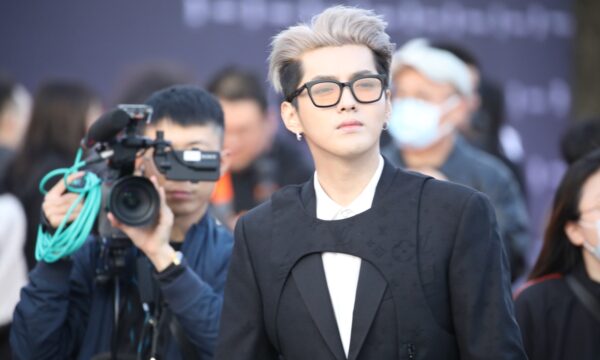
The Chinese government issued a bulletin on Friday the 27th through their Cyberspace Administration office mandating specific actions and policies to improve the online the behavior of fans and celebrities. This is part of the ongoing “清朗”, or Clear and Bright campaign against internet toxicity. This initiative was launched last year, but obviously authorities feel like last year’s efforts didn’t go far enough.
To that end, the points noted in this year’s bulletin are:
- No ranking of Idols. Their works can be listed/ranked but not the names of celebrities.
- Ranking criteria should not be based on likes, comments, views. “Professional evaluation” should be the basis.
- Extra scrutiny on the online behavior of celebrity agencies. The platforms and the studios will have greater jurisdiction/responsibility for their official fan groups.
- No unofficial fan groups. Onus is on management of celebrities to create relationships between them and official groups. Celebrities can be punished for neglecting this responsibility.
- Trolling, verbal abuse, and spreading malicious gossip is forbidden. Celebrity management and platforms will be responsible for policing this. Penalties on platforms/celebrities unable to manage their fans.
- Continue to close/block fan groups established to encourage illicit behavior. Channels that are established for gossip, astroturfing, illegal fundraising, raiding.
- Punishment for coercing fans to buy merchandise for favors/voting.
- Variety shows should abide by certain standards. They cannot charge money or require membership for participation from fans.
- Extra attention must be taken to ensure fans who are minors cannot engage in destructive behavior (excessive voting, spending money, spending too much time on online fan circles).
- No illegal fund-raising campaigns, domestic OR international. Continue to investigate overseas websites* that continue to rank, vote, and fund-raise for celebrities.
*The note about “overseas websites” is a little ominous and a lot interesting. DuckAd better watch out; Xi’s coming for you!!
Many of these seem specifically directed at the fallout of the Youth With You scandal of milk being wasted for votes. The day before, iQiyi, online video channel and producer of Youth With You, announced it will no longer produce idol competition content. It is likely that we’ve seen the last of YWY/CHUANG, at least for a few years. It’s unknown whether iQiyi will stop streaming the Mnet-produced Girls Planet 999, at least I haven’t seen news one way or the other quite yet.
Wrapped with these issues is Weibo (the Twitter of China) and its’ own ‘Star Power Ranking List’, basically an online leaderboard that passively encouraged competition between the fan circles on it’s platform. The online social networking giant, also under internal scrutiny for bribery, recently announced they will retire the list. Weibo has also been very active in moderating its fan communities lately, whether it be BTS, actress Zhao Liying, or Kris Wu supporters. Celebrities are already being held accountable for the actions of their fans, as is the case with Zhao Liying.

Speaking of Kris Wu, one might wonder why the focus on fan groups vs celebrities. The government’s concern about idol culture extends to at least 2018, when they issued a “flower boy” ban following NINEPERCENT’s fan brawl incident in Australia. In February, the CCP mandated Celebrity Morality Guidelines that forbid everything from gambling to lip-syncing. Kris Wu’s recent fall has prompted a resurgence of celebrities showing proper feasance to these guidelines, attending “morality classes” and posting online support of the February guidelines as well as the new Cyberspace Associate provisions. Also of note is that controversial celebrities, even without recent issues, are also quietly being scrubbed from online services. A bad reputation might be enough to get you booted.
It’s somewhat comforting to see that, no matter what style of government or economy your country has, you will always have young people with too much time and low reading comprehension skills threatening to doxx/assault each other online in the name of celebrities. And while attempting to curb celebrity bad behavior and online toxicity might be as futile as pushing against the tide, these provisions will certainly slow the growth of idol culture in China. At least temporarily.
——
An aside: part of the interesting thing about Girls Planet 999 is that it hinted at the possible flight of Chinese trainees to markets outside. Crackdowns like this are typically telegraphed to companies waaay in advance (Weibo’s mass bannings and iQiyi adjusting their programming). I wouldn’t be surprised if a few of the larger Chinese entertainment agencies (like Yuehua and Jaywalk Newjoy) got wind of the coming Idol Apocalypse and decided to take their chances in a market more conducive to short-term success.
 Asian Junkie Asian pop. Without discretion.
Asian Junkie Asian pop. Without discretion.